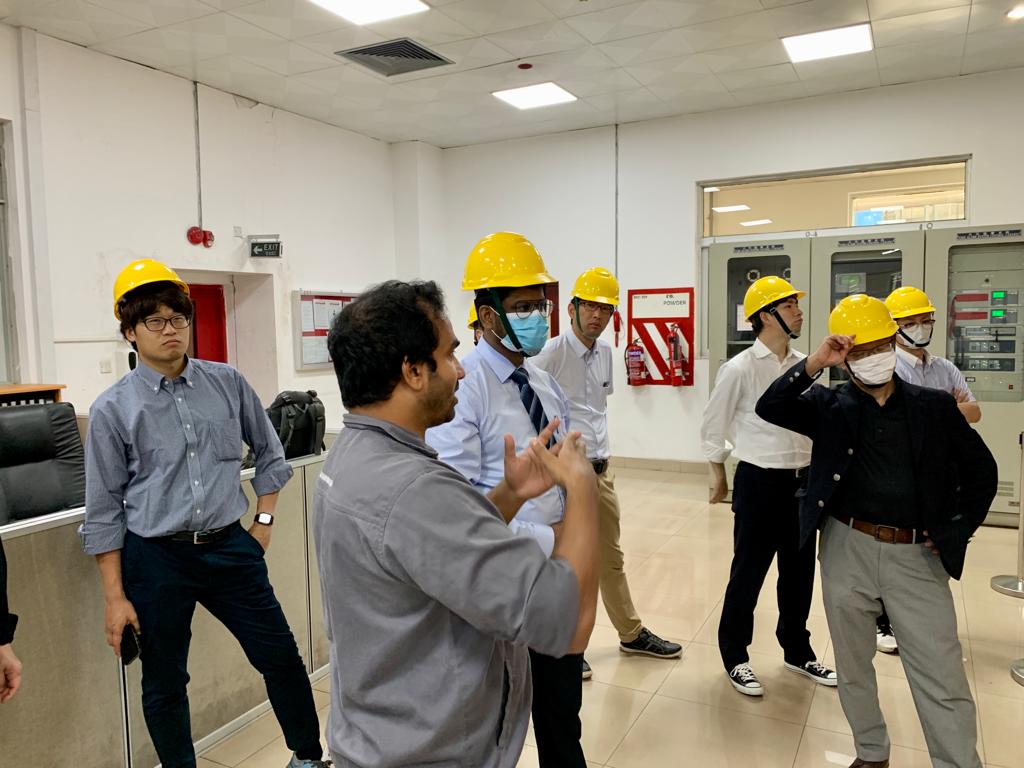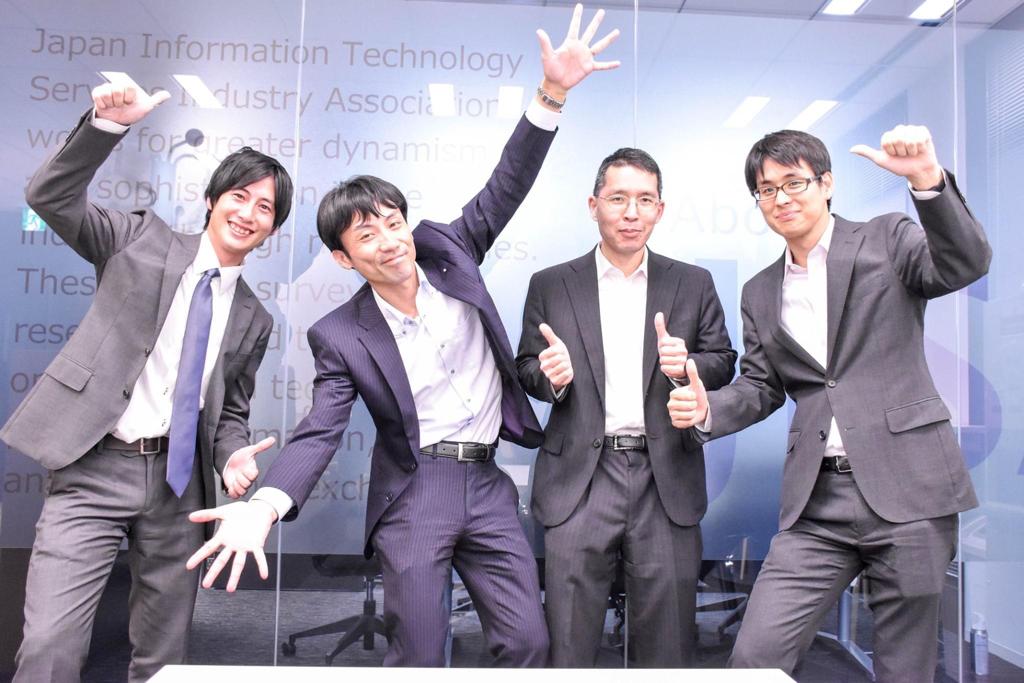Training and Capacity Building
Adam-i Training and Capacity Building Programs refer to educational initiatives offered by Adam-i services that aim to enhance individuals' skills, knowledge, and capabilities in various domains. These programs are designed to equip participants with the tools and expertise needed to excel in their careers, contribute effectively to their organizations, and drive positive change within their communities. The focus is on building both technical and soft skills while fostering a culture of continuous learning and development.
Here are some key components and meanings of Adam-i Training and Capacity Building Programs:

Emerging Market Practicum Programs

Emerging market practicum programs are experiential learning initiatives designed to provide students, professionals, or organizations with hands-on exposure to the business, economic, and cultural dynamics of emerging markets. These programs aim to bridge the gap between theoretical knowledge and practical application, offering participants a unique opportunity to gain firsthand insights into the challenges and opportunities of conducting business in emerging economies. Here are some key aspects of emerging market practicum programs.
Adam-i's emerging market practicum programs can be tailored to various educational levels, from undergraduate and graduate students to professionals seeking to expand their international experience. These programs play a crucial role in preparing participants for the complexities of operating in diverse and rapidly evolving emerging market environments.
We understand that successful digital transformation involves organizational change. Therefore, we provide change management support and training to ensure a smooth transition for your team.
Emerging market practicum programs emphasize learning through real-world experiences. Participants engage in activities such as market research, project work, field visits, and interactions with local businesses and communities.
These programs often include cultural immersion components that expose participants to the local customs, traditions, and social dynamics of the emerging market. This cultural understanding is essential for effective business engagement.
Emerging market practicum programs may involve participants from diverse backgrounds, including business, economics, international relations, and social sciences. This interdisciplinary approach fosters holistic learning and diverse perspectives.
Participants may work on industry-specific projects that address real challenges faced by businesses in the target market. This practical experience helps participants develop problem-solving skills and industry-specific knowledge.
Collaborations with local businesses, organizations, and entrepreneurs offer participants opportunities to gain insights into local business practices, supply chains, marketing strategies, and customer behaviors.
These programs are often led by experienced facilitators, professors, or industry experts who provide guidance, mentorship, and valuable insights throughout the program.
Adam-i organizes business networking opportunities where themes are created for engaging conversations among participating companies or businesses. Participants can establish connections with local professionals, peers, and mentors, creating a valuable network that can be beneficial for future career opportunities and collaborations.
Trainings are organized for companies or businesses to enable participants to develop a global perspective by comparing and contrasting business practices between the emerging market and their home country.
Trainings on skill development enhance the various skills of participants including cross-cultural communication, adaptability, critical thinking, teamwork, and project management, which are essential in today’s globalized business environment.
This program include community engagement initiatives, where participants collaborate with local communities on projects that have a positive social impact.
In this program, participants gain insights into market entry strategies, regulatory challenges, and competitive landscapes, helping businesses make informed decisions about entering or expanding in emerging markets.
After the program concludes, participants often engage in reflection sessions, where they analyze their experiences, identify lessons learned, and consider the implications for future business endeavors.
Digital Transformation Training Programs
Digital transformation training programs are designed to equip individuals and organizations with the skills and knowledge needed to navigate the changing landscape of technology and business. These programs address various aspects of digital transformation, including emerging technologies, data analytics, innovation, and organizational change. Here are some key types of digital transformation training programs.
These specific type of training depends on the organization's digital transformation goals, industry, and the roles of the participants. A holistic approach might involve a combination of these training types to ensure a comprehensive understanding of digital transformation's various facets.

These programs focus on developing the strategic vision required to drive digital transformation within an organization. Participants learn about aligning technology initiatives with business objectives, creating a digital roadmap, and fostering a culture of innovation.
Training in this category covers the latest trends in technology, such as artificial intelligence (AI), machine learning, blockchain, Internet of Things (IoT), and cloud computing. Participants gain insights into how these technologies can be leveraged to transform business processes.
These programs teach participants how to collect, analyze, and interpret data to make informed business decisions. Training may cover data visualization, predictive analytics, data governance, and data-driven decision-making.
In the digital age, cybersecurity is crucial. Training in this area helps individuals understand cyber threats, implement security measures, and ensure compliance with data privacy regulations.
These programs focus on leveraging digital channels to market products and services effectively. Participants learn about content marketing, social media strategies, online advertising, and enhancing customer experiences through digital platforms.
Agile methodologies and DevOps practices emphasize iterative development, collaboration, and continuous delivery. Training in these areas helps organizations become more agile, adaptive, and responsive to change.
These programs explore how technology can be used to enhance recruitment, employee engagement, performance management, and learning and development within organizations.
For businesses transitioning to digital sales channels, these programs cover topics such as setting up and managing online stores, digital payment systems, and e-commerce strategy.
Participants learn about cloud computing models, migrating to the cloud, managing cloud infrastructure, and optimizing resources for scalability and cost efficiency.
Digital transformation often requires cultural and organizational change. These programs provide strategies for managing change, overcoming resistance, and ensuring successful adoption of new technologies.
Innovation training encourages participants to think creatively and come up with innovative solutions to business challenges. Design thinking methodologies promote user-centered problem-solving.
For industries embracing connected devices and smart technologies, training in the Internet of Things (IoT) and Industry 4.0 concepts can be valuable.
RPA training focuses on using software robots to automate repetitive tasks, enhancing operational efficiency.
As technology advances, ethical considerations become essential. Training in this area covers responsible AI practices and the ethical use of data.
These programs cater to non-technical professionals, helping them understand the implications of digital transformation on their roles and industries.
Leadership And Management Training Programs

Leadership and Management training programs are designed to develop and enhance the skills and knowledge of individuals in managerial roles, equipping them to effectively lead teams, make informed decisions, and drive organizational success. There are various types of management training programs that cater to different aspects of managerial roles and responsibilities. The specific type of management training program chosen depends on the organization's needs, the manager's current skill set, and the desired outcomes. Many organizations offer a combination of these programs to provide a well-rounded development experience for their managers.
Some key types of management training programs include:
These programs focus on nurturing leadership qualities and skills such as communication, strategic thinking, emotional intelligence, and decision-making. They aim to prepare managers to lead teams and guide them toward achieving organizational goals.
Supervisory training programs are geared toward first-line managers and team leaders. They cover essential skills like delegation, conflict resolution, time management, and effective communication to help managers excel in their roles.
Effective communication and interpersonal skills are critical for managers. These programs help managers develop active listening, persuasion, negotiation, and conflict resolution skills, enabling them to interact more effectively with their teams and stakeholders.
Performance management training focuses on setting goals, providing constructive feedback, conducting performance evaluations, and motivating employees to excel. Managers learn to align individual and team performance with organizational objectives.
These programs equip managers with tools to navigate organizational changes smoothly. Managers learn how to communicate change, address resistance, and guide their teams through transitions.
Strategic management training programs teach managers how to analyze data, assess risks, and make informed decisions that align with the organization’s long-term goals and vision.
Conflict resolution training helps managers identify the sources of conflicts, address them constructively, and promote teamwork. Problem-solving training equips managers with techniques to identify root causes and develop effective solutions.
Managers often face high-pressure situations. Time and stress management programs help them prioritize tasks, manage workloads, and maintain their well-being.
These programs focus on building cohesive and high-performing teams. Managers learn to foster collaboration, promote diversity and inclusion, and harness the strengths of each team member.
Managers involved in project management benefit from programs that cover project planning, execution, monitoring, and risk management. These skills are essential for successfully delivering projects on time and within budget.
These programs emphasize ethical decision-making, responsible leadership, and the importance of considering social and environmental impacts.
Training in negotiation helps managers handle disputes and conflicts effectively, whether with team members, clients, or other stakeholders.
Managers learn how to handle unexpected crises, make quick decisions, and communicate effectively during challenging situations.
Managers are trained to create an inclusive workplace that values diversity, promotes equity, and ensures fair treatment of all employees.
Design Thinking and Product Reengineering training programs
Design Thinking and Product Reengineering are two distinct but interrelated concepts that can greatly benefit from training programs. By integrating Design Thinking principles into product reengineering training programs, participants gain a holistic approach to product improvement, ensuring that solutions are not only technically advanced but also meet user needs and preferences.
Here are the key types of training programs that combine both Design Thinking and Product Reengineering:

This program introduces participants to the principles of Design Thinking and how they can be applied to the process of reengineering products. It covers empathizing with user needs, ideation for innovative solutions, prototyping, testing, and iteration in the context of product improvement.
These workshops combine Design Thinking methodologies with product reengineering challenges. Participants work in teams to identify areas of improvement in existing products, generate creative ideas, and develop prototypes for enhanced versions.
Training in this area emphasizes the importance of understanding user needs and preferences when reengineering products. Participants learn how to gather user insights, apply empathy, and design solutions that align with user expectations.
Participants learn how to use prototyping techniques within the reengineering process. They create rapid prototypes to test and validate design changes, incorporating user feedback into iterative improvements.
This program focuses on mapping the customer journey to identify pain points and opportunities for improvement in existing products. Design Thinking principles guide participants in creating customer-centric solutions.
Based on the concept of design sprints, this training program guides participants through a structured process of ideation, prototyping, and validation in a short time frame, specifically geared toward reengineering challenges.
This program emphasizes collaboration between multidisciplinary teams involved in reengineering projects. Participants learn how to integrate Design Thinking techniques to facilitate productive teamwork and diverse perspectives.
Training in visual communication and storytelling helps participants effectively communicate reengineering concepts and solutions to stakeholders, bridging the gap between technical details and user impact.
This training focuses on conducting ethnographic research to gain deep insights into user behaviors, preferences, and pain points. These insights inform the reengineering process to create products that truly meet user needs.
Designed for managers and leaders, this program teaches how to foster a culture of innovation and reengineering within teams and organizations, while leveraging Design Thinking methodologies.
Combining Lean principles with Design Thinking, this program guides participants to identify waste, inefficiencies, and areas for improvement in products while emphasizing user-centered design.
Training in this area explores how Design Thinking can be applied to reengineer products for improved sustainability and reduced environmental impact.
This program helps participants effectively pitch and present reengineered product concepts, using Design Thinking principles to convey user benefits and value propositions.
Tailormade Capacity building programs

Tailormade Capacity building programs are designed to enhance the abilities, skills, and resources of individuals, organizations, or communities to effectively achieve their goals and objectives. These programs vary widely depending on the context and the specific needs of the participants. It's important to note that the effectiveness of capacity building programs depends on aligning them with the specific needs and context of the participants. Customization, participatory approaches, and sustainability are key factors in successful capacity building initiatives.
Here are some key types of capacity building programs:
These programs focus on imparting specific skills and knowledge to individuals or groups. They can range from technical skills (e.g., IT skills, project management) to soft skills (e.g., communication, leadership).
These programs aim to enhance the leadership and managerial capabilities of individuals within an organization. They cover areas such as strategic thinking, decision-making, team management, and communication.
Programs focused on institutional strengthening aim to improve the overall functioning and effectiveness of an organization. This could include improving governance structures, operational processes, and financial management.
These programs empower communities with skills and knowledge to identify their needs, plan and implement projects, and effectively manage resources for sustainable development.
Capacity building for entrepreneurs and small business owners includes training in business planning, marketing, financial management, and other aspects crucial for running a successful business.
These programs focus on building capacities for environmental conservation, sustainable resource management, and climate change adaptation and mitigation.
In the healthcare sector, capacity building programs could include training healthcare professionals, improving healthcare infrastructure, and strengthening health systems.
Programs aimed at building the capacity of trainers enable them to deliver effective training to others. This can have a multiplier effect by expanding the reach of capacity building efforts.
Capacity building in policy and advocacy equips individuals or organizations with the skills to advocate for change, influence policy decisions, and promote social justice.
These programs enhance the capacity to conduct research, collect and analyze data, and draw meaningful insights to inform decision-making.
Capacity building in this area equips individuals and communities with skills to address conflicts, promote dialogue, and build peace.
In today’s digital age, programs that enhance digital literacy and technology skills are essential for individuals and organizations to remain competitive.
Capacity building programs that focus on financial literacy help individuals and communities make informed financial decisions and promote economic empowerment.
These programs address gender disparities and promote social inclusion by building awareness, changing attitudes, and fostering equality.
Capacity building in this area prepares individuals and communities to effectively respond to and recover from emergencies and disasters.
These programs focus on building awareness of human rights principles, advocating for rights-based approaches, and promoting social justice.